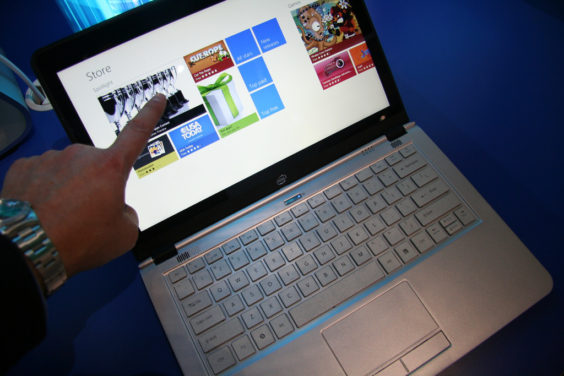
Shopping, and saving, online can often be an annoying two-step process. You search for a product, place it in your basket – and then you have to go back and search online for a coupon before completing your purchase. What if this inefficient system could be combined into one easy step?
Yahoo thinks it has the answer.
The company is looking to merge the functions of search engines like its own Yahoo Search, with coupon search sites like RetailMeNot, so you can do all of your shopping and saving with just a single search.
If it’s not quite game-changing, it may at least be somewhat more convenient. Currently, shoppers with an item sitting in their online shopping cart “may spend extensive amounts of time and/or computing resources searching for coupons that may be applicable,” a patent application from Yahoo reads. “The user may find coupons that are expired,” it goes on. “If the user does not find an applicable coupon, then the user may forgo purchasing” what’s in their cart altogether.
So Yahoo wants to sell ad space to companies that are offering coupons for the products you’re searching for.
Today, if you do an internet search for “laundry detergent,” for example, the results page will include plenty of ads for places that will sell you soap. But Yahoo envisions the results page including actual laundry detergent coupons that you can click on, go to a site that will accept them, and make your purchase. Or it could link you to a printable coupon that you can bring to an actual store, if you’re so inclined.
The application also describes a smart search system that will match your hoped-for item with a relevant coupon. If you type in “red high-heeled shoes,” then Yahoo would be able to translate that into a coupon valid on women’s shoes. A search for “pumpkin spice facial” would generate a coupon for spa services.
Yahoo’s main competitor, Google, has recently filed coupon-related patent applications for a digital screen that you can literally tear apart into coupons, and a contact lens that can scan coupon bar codes. So Yahoo’s invention, in comparison, isn’t exactly going to revolutionize couponing as we know it. But the patent filing, and potential new revenue stream, comes as Yahoo struggles to remain relevant – and attractive to possible buyers. The company is considering takeover offers, and may end up auctioning itself off in pieces.
So someday in the future, as you look through your Google-powered contact lenses for a coupon, and find one that you can tear off your Google-created computer screen, you may be able to thank Yahoo for allowing some coupons to show up in your search results. Just as soon as you do a Google search to help you remember what “Yahoo” was.











So the industry that can’t make mobile barcodes scale up to work across retail (even though paper coupons do it with ease, yet have been in decline for 20 years, newspapers are dying, shoppers demand mobile, etc.) is suddenly going to bring us disposable digital tearsheets and barcode-scanning contacts.
Gotcha.